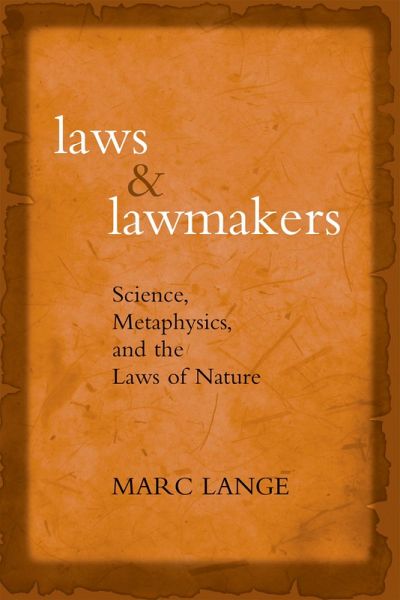
Laws and Lawmakers (eBook, ePUB)
Science, Metaphysics, and the Laws of Nature
Versandkostenfrei!
Sofort per Download lieferbar
16,95 €
inkl. MwSt.
Weitere Ausgaben:

PAYBACK Punkte
8 °P sammeln!
Laws of nature have long puzzled philosophers. What distinguishes laws from facts about the world that do not rise to the level of laws? How can laws be contingent and nevertheless necessary? In this brief, accessible study, Lange offers provocative and original answers to these questions. He argues that laws are distinguished by their necessity, which is grounded in primitive subjunctive facts (expressed by counterfactual conditionals). While recognizing that natural necessity is distinct from logical, metaphysical, and mathematical necessity, Lange explains how natural necessity constitutes ...
Laws of nature have long puzzled philosophers. What distinguishes laws from facts about the world that do not rise to the level of laws? How can laws be contingent and nevertheless necessary? In this brief, accessible study, Lange offers provocative and original answers to these questions. He argues that laws are distinguished by their necessity, which is grounded in primitive subjunctive facts (expressed by counterfactual conditionals). While recognizing that natural necessity is distinct from logical, metaphysical, and mathematical necessity, Lange explains how natural necessity constitutes a species of the same genus as those other varieties of necessity. Along the way, Lange discusses the relation between laws and objective chances, as well as such unjustly neglected topics as the completeness of the laws of physics and whether the laws of nature can change. Lange's elegant, engagingly written book is non-technical and suitable for undergraduate philosophers (and undergraduate scientists interested in the logical foundations of science). It is "must reading" for metaphysicians and philosophers of science working on laws, chance, counterfactuals, modality, or the philosophy of physics.
Dieser Download kann aus rechtlichen Gründen nur mit Rechnungsadresse in A, B, BG, CY, CZ, D, DK, EW, E, FIN, F, GR, HR, H, IRL, I, LT, L, LR, M, NL, PL, P, R, S, SLO, SK ausgeliefert werden.













